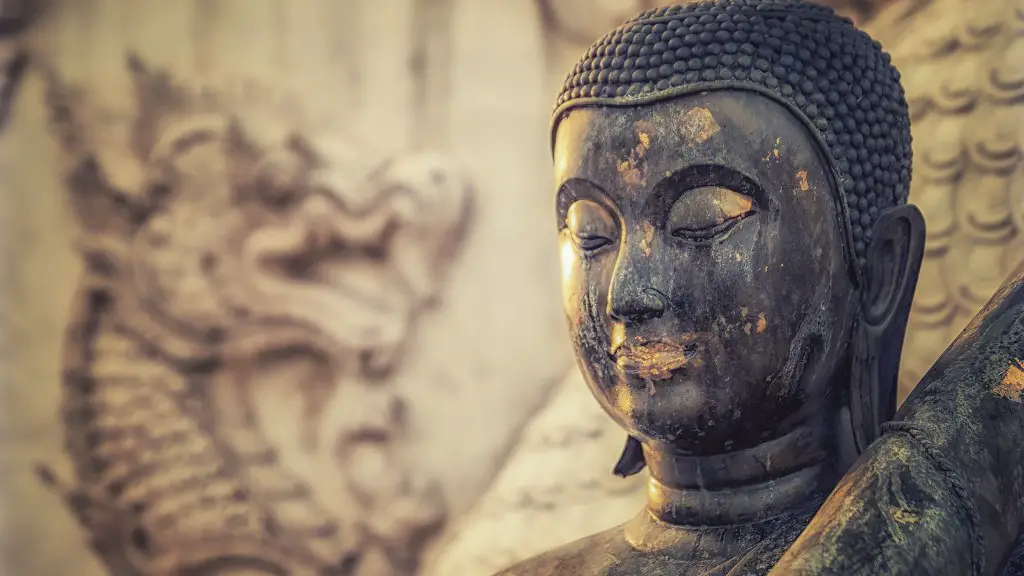Buddhism is a religion that was founded over 2,500 years ago in India. It is based on the teachings of Siddhartha Gautama, who is also known as the Buddha. The Buddha was born into a wealthy family, but he gave up his privileged lifestyle to live a life of poverty and meditation. He eventually became enlightened and began teaching others about the Four Noble Truths and the Eightfold Path.
Buddhism teaches that the way to end suffering is to live in a way that is moral and ethical, and to let go of the desires and attachments that cause suffering. Buddhism also teaches that everyone is capable of achieving enlightenment, and that the path to enlightenment is through meditation and mindfulness.
There are many beliefs within Buddhism, but some of the most common are that all beings have the potential to achieve Buddhahood, that the world is impermanent and in a state of constant change, and that suffering can be alleviated by following the Noble Eightfold Path.
What are the 3 main beliefs of Buddhism?
Buddhism is a religion that is based on the teachings of Siddhartha Gautama. The main principles of this belief system are karma, rebirth, and impermanence.
Karma is the belief that our actions have consequences, both in this life and in future lives. Rebirth is the belief that after we die, we are reborn into another body. Impermanence is the belief that everything is constantly changing and nothing is permanent.
The precepts are commitments to abstain from killing living beings, stealing, sexual misconduct, lying and intoxication. Within the Buddhist doctrine, they are meant to develop mind and character to make progress on the path to enlightenment.
The precepts are important because they help to develop qualities such as compassion and wisdom. They also serve as a reminder to stay on the path of enlightenment and to avoid actions that would lead to suffering.
What are Buddhist beliefs and values
Buddhists believe that people should try to end suffering; all things should be seen as having no self or essential nature. The main Buddhist values are love, wisdom, goodness, calmness and self-control. Buddhists strive to develop these qualities within themselves in order to end the cycle of suffering.
There are several reasons why Buddhism is not a theistic religion. First, the Buddha himself rejected the idea of a creator god. Second, Buddhist philosophers have argued that belief in an eternal god is nothing but a distraction for humans seeking enlightenment. Third, the focus of Buddhism is on spiritual liberation, not on worshiping a deity.
What are the 2 basic beliefs of Buddhism?
The Four Noble Truths are the cornerstone of Buddhist teachings. They are:
1. The truth of suffering (dukkha)
2. The truth of the cause of suffering (samudaya)
3. The truth of the end of suffering (nirvana)
4. The truth of the path to the end of suffering (magga)
Buddhists believe that suffering is caused by our own actions and thoughts, and that it can be ended by following the Noble Eightfold Path. This path includes living in moral ways, meditating, and developing wisdom and understanding.
The Eightfold Path is a series of eight steps that Buddhists can follow to help them lead a contented (satisfactory) life. The steps are: Right Understanding; Right Thought; Right Speech; Right Action; Right Livelihood; Right Effort; Right Mindfulness; and Right Concentration.
What are the Buddhist worship?
Buddhists worship at temples or monasteries as a way to meditate and pray. Some also set up shrines at home to worship privately. Buddhist offer fresh flowers, lights, and lamps, or burn fragrant incense at shrines with images of the Buddha. These act pay respect to the Buddha and make merit for the devotee.
The Buddhists’ belief in “free action” rather than “free will” stems from their view that agents are not self-determining powers, but are instead influenced by their needs and circumstances. Consequently, they see moral freedom as lying in the ability of agents to form desires that are consistent with these needs and circumstances. This belief in “free action” provides a way to reconcile the apparent tension between the Buddhist commitment to moral responsibility and the denial of free will.
What is the main goal of a Buddhist
The goal of Buddhism is to become enlightened and reach nirvana. Nirvana is believed to be attainable only with the elimination of all greed, hatred, and ignorance within a person. Nirvana signifies the end of the cycle of death and rebirth.
The Four Noble Truths are the essence of Buddha’s teachings, though they leave much left unexplained. They are the truth of suffering, the truth of the cause of suffering, the truth of the end of suffering, and the truth of the path that leads to the end of suffering. Suffering is caused by attachment to things that are impermanent. The end of suffering is attained by letting go of attachment. The path to the end of suffering is the Noble Eightfold Path.
Do Buddhists believe in heaven?
In Buddhism, there is no concept of punishment or reward. There is no divine being who decides who goes to hell or heaven. There is merely the illusory results of our thought, words and deeds, which we call karma.
There is no doubt that there are many similarities between Jesus and Buddha, and many high level Buddhists have drawn analogies between the two. However, there are also some significant differences between them. Jesus was born into a wealthy family and had all the advantages that come with that, while Buddha was born into a poor family and had to work hard for everything he achieved. Jesus preached about love and forgiveness, while Buddha preached about compassion and understanding. In the end, though, both Jesus and Buddha were great spiritual teachers who had a profound impact on the lives of millions of people.
Does Buddhism believe in soul
Buddhism is a religion that does not believe in the existence of a soul or self. Instead, it believes in a cycle of transmigration, which is a rebirth and redeath. This is the fundamental nature of existence.
There is a big difference between the concepts of rebirth and reincarnation in Buddhism. Reincarnated beings retain no memory of their previous lives, while those who are reborn retain some memories of their previous lives.
What type of religion is Buddhism?
Buddhism is a religion that does not believe in a single, all-powerful god. Instead, it teaches that there is an ultimate reality, Nirvana, that is beyond the many long-lived gods that are worshipped in polytheistic religions. This makes Buddhism a kind of trans-polytheism.
Buddhist teaching regarding life and death is that they are a continuous cycle. Consciousness (the spirit) is believed to continue after death and may be reborn. Death is seen as an opportunity for liberation from the cycle of life, death and rebirth.
What are the 10 rules of Buddhism
The Ten Grave Precepts are a set of guiding principles for living a moral and ethical life. They emphasize the importance of respecting life, being giving, and honoring the body, among other things. The precepts provide a framework for living a more meaningful and fulfilling life.
1. Develop a clear viewpoint on what makes you happy.
2. Don’t just believe anything that you see or hear. Evaluate it against your own values.
3. Be mindful of your actions and their impact on your happiness.
4. Put forth the effort to make things happen that will lead to happiness.
5. Concentrate on the present moment and savor the good moments.
6. Be patient in pursuit of happiness.
7. Practice moderation in all things.
Final Words
There are many beliefs of Buddhism, but some of the most common are that all beings have the potential to attain enlightenment, that the path to enlightenment is through mindfulness and practice, and that karma determines one’s future.
There are many beliefs of Buddhism, but one of the main beliefs is that all beings have the potential to attain enlightenment.




